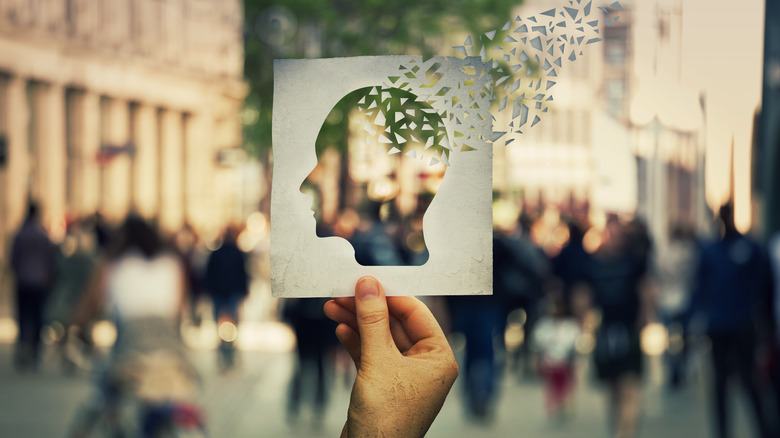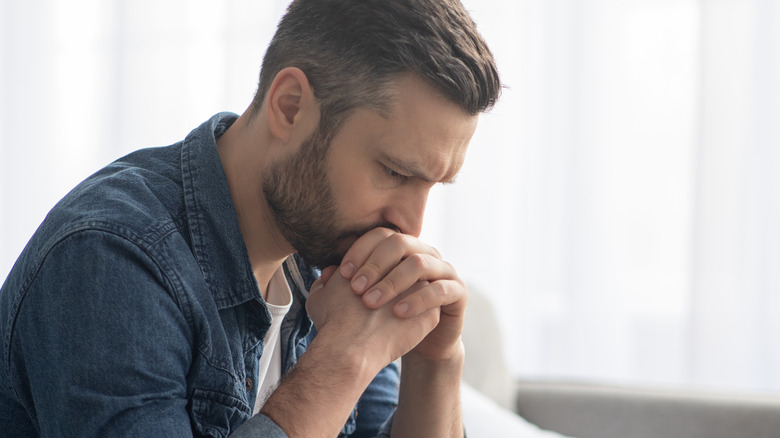How Depression Can Affect Your Memory
Depression can make you feel guilty, hopeless, or irritable. You might feel depression in your body through aches and pains. Depression might disrupt your sleep or change your appetite. It's not just temporary. According to the National Institute of Mental Health, if you feel these symptoms for more than two weeks, you might have depression. Depression also can affect your concentration, making it hard to make decisions. That's because depression affects your short-term memory (via Healthline).
According to a 2014 article in Educational Psychology Review, your working memory stores a few concepts at a time to help you understand the world around you. Working memory is limited, meaning that you can only store a few concepts at a time before it gets overwhelmed. A 2016 study in Cognition & Emotion further found that depression weakens the capacity of your working memory, which is why you might have more problems concentrating.
Memory problems don't just come with age
Although our memory often declines with age, depression can affect our memory much earlier. A 2021 study in the Journal of Psychiatric Research found that more than half of adults suffering from depression under 65 years old had cognitive issues severe enough to affect their everyday life.
Sometimes depression can influence our memory much earlier, which can affect our childhood development. A 2019 study in the Journal of Abnormal Psychology followed preschool children until adolescence. Adolescents who had a history of depression had weakened episodic memory and hippocampal volume. Episodic memory is our ability to recall past or recent episodes in our lives, and the hippocampus is a critical part of our brain that helps the functioning of our memories (via University of California San Francisco). People who are depressed also tend to remember bad memories better than good ones (via Brain Facts).
Memory loss from depression can also be confused with dementia. According to Harvard Medical School, older adults with depression might suffer from memory decline because they don't have the motivation or energy to respond to intellectually challenging tasks. Depression can quickly cause a decline in mental functioning, but one can recover through depression treatments.
Treating depression and memory loss
According to Healthline, the best way to treat any depression-related memory problems is to treat the depression. Managing depression often involves a combination of counseling, antidepressants, staying physically active, and engaging in social activities. According to Merit Health, you can give your memory a boost by eating a diet rich in omega-3 fatty acids found in fish.
There are also some natural remedies for depression, according to WebMD. If your depression leaves you unable to concentrate, establish a routine and set small goals for yourself. If you feel like you're stuck in your depression, try something new to help alter your brain chemistry. You should also steer clear of alcohol or other drugs that might worsen your depression. According to Healthline, alcoholism or drug use could also cause memory problems. Other conditions such as a vitamin B12 deficiency, a recent head injury, or hyperthyroidism can lead to cognitive issues. You should also check with your doctor to see if any of your current medications might cause memory issues.
If you or someone you know is struggling with mental health, please contact the Crisis Text Line by texting HOME to 741741, call the National Alliance on Mental Illness helpline at 1-800-950-NAMI (6264), or visit the National Institute of Mental Health website.



